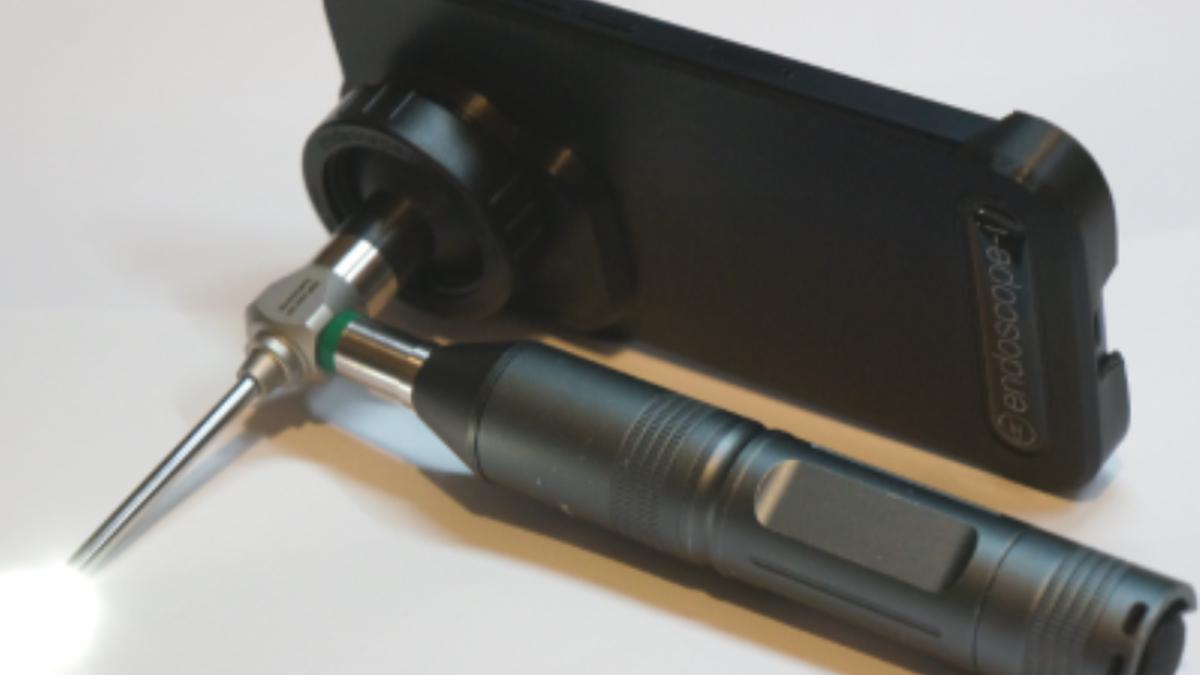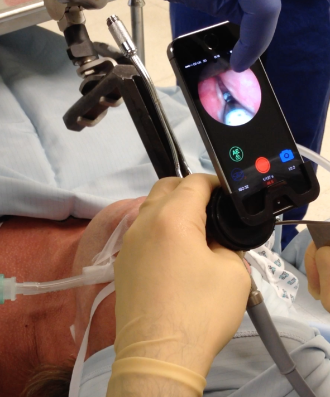NHS pilots iPhone app to rule out throat cancer

NHS England has started a pilot trial of an iPhone app and device combination that could be used by nursing staff to speed up reviews of suspected throat cancer.
The technology consists of an adaptor for the iPhone's regular camera, which converts it into a 32mm lens and an accompanying app, both developed by UK medtech company Endoscope-i.
The hope is that the mobile endoscopic imaging tool will allow nursing staff to carry out initial assessments of patients in community settings – and help the NHS meet its very ambitious target of diagnosing 75% of cancers at an early stage (stage 1 or 2) by 2028.

The device/app combination captures live endoscopy examinations of the throat in high definition, which can then be shared with securely specialist head and neck consultants via the cloud. A consultant then reviews the video footage and can rapidly detect any traces of cancer, reporting the results back directly to the patient.
Endoscope-i's technology is one of 14 projects to receive a share of £25 million ($32 million) as part of the NHS Cancer Programme Innovation Open Call, the third round of which is awarding contracts this month.
Other innovations that have been piloted as part of the programme include a sponge that can be used to detect oesophageal cancer and a home-testing kit for people who have a genetic disposition to a fault in the BRCA gene that causes some types of breast, ovarian, prostate, and pancreatic cancer, and GRAIL's Galleri blood test, which could detect dozens of different forms of cancer before symptoms appear.
Early-stage results with the system in more than 1,800 people reviewed at North Midlands University Hospitals NHS Trust revealed that no cancers were missed and there was a 1% pickup of cancers in a low-risk group that would otherwise have been discharged or seen a delay in treatment, with patents getting results within a day (23 hours) of the endoscopy.
The use of the technology also resulted in the number of consultants needed to manage the suspected cancer referrals down to three from 10, and the hope is that it could help to reduce waiting times for treatment, currently at record levels in the NHS.
NHS England said the pilot will run initially across multiple Trusts in the West Midlands, where Endoscope-i is based.
"The new pathway has given the rapid cancer referral service the radical change it has long needed," said Ajith George, a consultant head and neck surgeon at University Hospitals North Midlands NHS Trust.
"These types of referrals are increasing exponentially whilst cancer diagnosis rates are not," he added. "Streamlining services helps keep the focus on those unfortunate patients who get a cancer diagnosis."
In the UK, there are approximately 250,000 urgent referrals for suspected head and neck cancer each year, but only 5% of these are ultimately diagnosed with cancer.












